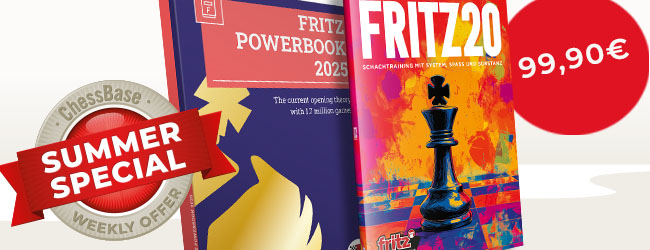Closely matched
World Champion Magnus Carlsen and eleven more of the world's best chess players are competing in the Chessable Masters by chess24, the third event in the $1 million Magnus Carlsen Chess Tour, taking place from June 20 to July 5.
In contrast with Thursday’s quarterfinal matchups, the first sets played on Friday featured tense, lengthy struggles. Anish Giri and Alexander Grischuk needed seven games to find a winner, while Ding Liren and Hikaru Nakamura got things done ‘in regulation’, but three out of four of their games lasted 64 moves or more, with the first two reaching 94 and 80 moves respectively.
Out of the eleven games played in both matches, only one finished decisively — a win with black for Ding — as Giri and Grischuk drew four rapid games, both blitz tiebreakers and the deciding Armageddon (the Dutchman had won Group B of the preliminary round-robins, which meant he could choose the colour in the sudden-death encounter; naturally, he chose black). The draw that gave Giri the victory featured both players ‘pre-moving’ while in deep time trouble in an endgame with a rook and a king per side.
Nakamura and Grischuk will get a chance to even the score on Sunday, as the matches are played to the best of three sets.
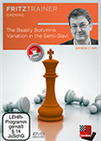 On this DVD you will be taken on a journey through what is arguably the sharpest opening line known to men.
On this DVD you will be taken on a journey through what is arguably the sharpest opening line known to men.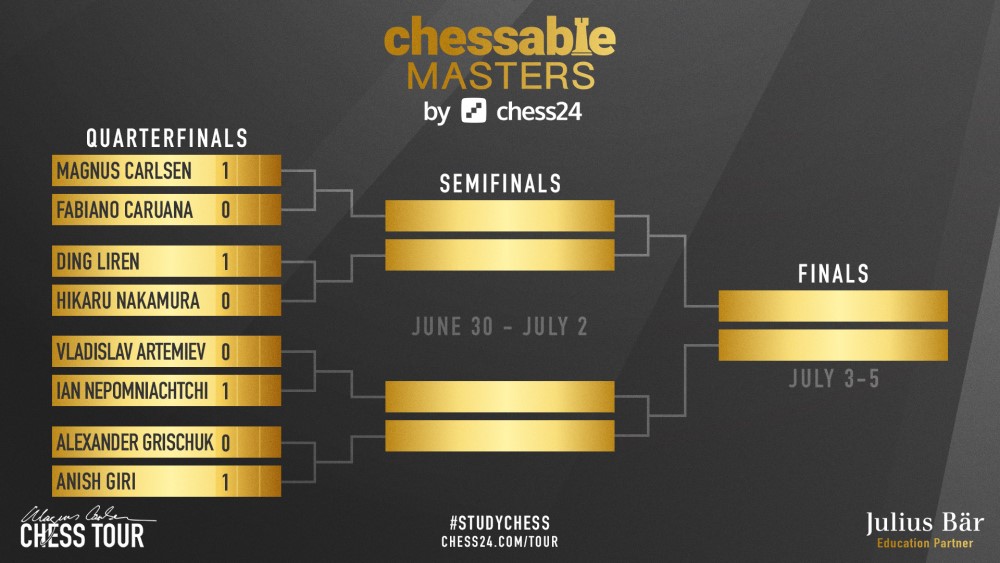
Ding 2½:1½ Nakamura
| Mini-match #1 |
Game 1 |
Game 2 |
Game 3 |
Game 4 |
| Ding Liren |
½ |
1 |
½ |
½ |
| Hikaru Nakamura |
½ |
0 |
½ |
½ |
Game 1 saw both players missing chances in a sharp, long-winded struggle. Ding advanced his h-pawn on move 22 and left his king vulnerable to an attack; Nakamura failed to find a way to take advantage of this fact; and Ding ended up a pawn up in a complex position with queens, rooks and bishops of opposite colours:
Ding vs. Nakamura - Game 1
Black is threatening to capture the g4 and h5-pawns, and the correct way to defend them is with 39.Kg3, when the manoeuvring battle will continue. Ding played 39.f3 instead, giving his opponent a chance to play 39...e4. The Chinese star had another tough choice to make, and erred once again, going for 40.fxe4 (40.Bc5 or 40.Qe5 were better alternatives) and allowing 40...Bxg4 41.Rf4 Bxh5.
Nakamura now had the initiative against a weakened king, but could not prevent his opponent from exchanging queens and rooks, entering a pure opposite-coloured bishop endgame. The American tried to convert his material advantage into a win until move 94, but was never able to break Ding’s fortress on the dark squares.
A completely closed structure appeared on the board in game 2:
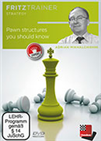 Every pawn structure has its typical plans and to know these plans helps you to find your way in these positions. On this DVD Mikhalchishin presents and explains the most common central structures: The Hedgehog, the Maroczy, Hanging pawns and the Isolani.
Every pawn structure has its typical plans and to know these plans helps you to find your way in these positions. On this DVD Mikhalchishin presents and explains the most common central structures: The Hedgehog, the Maroczy, Hanging pawns and the Isolani. Nakamura vs. Ding - Game 2
Kibitzing online, Magnus Carlsen tweeted: “Black king landing on b7 for sure”. The world champion was on point, as Ding’s monarch reached the b7-square eleven moves later.
The queens left the board on move 59, but the structure remained closed. The apparently endless sequence of manoeuvres continued, until Nakamura faltered decisively on move 76:
White’s 76.Ba1 — instead of 76.Rf2 — was a blunder, as Black now has 76...Rf8 77.c3 Rf1 78.Bb2 Bd1 and White would need to give up tons of material to prevent mate:
‘Naka’ went 79.d4, but had already seen that 79...h4+ is lethal. He resigned after 80.Kh2 g4 when the king is doomed.
Ding managed to draw the remaining two games against the world number one in blitz to get the all-important first-set win.
| Replay and check the LiveBook here |
Please, wait...
- Start an analysis engine:
- Try maximizing the board:
- Use the four cursor keys to replay the game. Make moves to analyse yourself.
- Press Ctrl-B to rotate the board.
- Drag the split bars between window panes.
- Download&Clip PGN/GIF/FEN/QR Codes. Share the game.
- Games viewed here will automatically be stored in your cloud clipboard (if you are logged in). Use the cloud clipboard also in ChessBase.
- Create an account to access the games cloud.
Select an entry from the list to switch between games
Giri 3:3 Grischuk
| Mini-match #1 |
Game 1 |
Game 2 |
Game 3 |
Game 4 |
Blitz 1 |
Blitz 2 |
Armageddon |
| Anish Giri |
½ |
½ |
½ |
½ |
½ |
½ |
½* |
| Alexander Grischuk |
½ |
½ |
½ |
½ |
½ |
½ |
½ |
*Giri had the black pieces and draw odds
The fact that all the games finished drawn in this matchup does not mean it was a dull confrontation. While Grischuk did not get much in his rapid games with white, Giri missed a couple of chances when he moved first — most notably, in game 2:
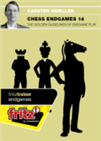 Rules of thumb are the key to everything when you are having to set the correct course in a complex endgame. In this final DVD of his series on the endgame, our endgame specialist introduces you to the most important of these rules of thumb.
Rules of thumb are the key to everything when you are having to set the correct course in a complex endgame. In this final DVD of his series on the endgame, our endgame specialist introduces you to the most important of these rules of thumb. Giri vs. Grischuk - Game 2
Giri incorrectly played 51.Ke4, going for the g-pawn and giving Grischuk an outside chance to save the draw. The experienced Russian showed great technique to miraculously get the half point, although it must be noted that Giri would most likely convert the diagrammed position into a win in a ‘slow’ game — even for top grandmasters, it is difficult to be precise in a 15-minute game!
After the four rapid games finished drawn, the players moved on to the pair of blitz tiebreakers (5 minutes plus 3-second increments). Grischuk could have put more pressure in the first game, when he did not find the strong 17.Na4, but that encounter also petered out into a draw eventually. One more draw in the second blitz game meant the set would be decided in Armageddon. Giri got to choose which colour to play with, as he won Group B in the preliminaries, and chose black — he had draw odds and 4 minutes to Grischuk’s 5 in a game with no increment.
Giri got the upper hand in the sudden-death decider, but instead of pushing for more he simplified the position, given he had draw odds. As it usually happens in these quick games, it all came down to the clock:
Grischuk vs. Giri - Armageddon
This is the kind of position that is only seen among elite players in these situations. By now, they were just trying to win on time, making one ‘pre-move’ after the other (moving before his opponent moved). Here, for example, Black ‘pre-moved’ 83...Rd6 instead of 83...Kxe8, which obviously would have given him the needed draw.
Giri was quick enough to avoid losing on time and eventually managed to exchange the rooks, thus achieving the draw he needed to get ahead on the scoreboard.
| Replay and check the LiveBook here |
Please, wait...
- Start an analysis engine:
- Try maximizing the board:
- Use the four cursor keys to replay the game. Make moves to analyse yourself.
- Press Ctrl-B to rotate the board.
- Drag the split bars between window panes.
- Download&Clip PGN/GIF/FEN/QR Codes. Share the game.
- Games viewed here will automatically be stored in your cloud clipboard (if you are logged in). Use the cloud clipboard also in ChessBase.
- Create an account to access the games cloud.
Select an entry from the list to switch between games
Links



















